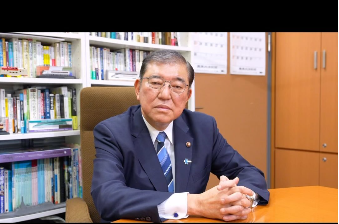
(Photo : Shigeru Ishiba (Iinstagram.com))
- Japan's PM Shigeru Ishiba dissolved the lower house of parliament, setting the stage for a general election.
- This comes after a political funds scandal that has led to public outrage and demands for reform.
- The election will focus on political reform, responses to inflation, and economic measures.
- Ishiba has promised economic and diplomatic reforms, including a fresh package of measures to help inflation-hit households and "constructive and stable" ties with China.
In a historic move, Japan's Prime Minister Shigeru Ishiba dissolved the lower house of parliament on Wednesday, paving the way for a general election. This decision comes as Ishiba, who was elected as the President of the ruling Liberal Democratic Party (LDP) on September 27 and assumed the office of Prime Minister on October 1, seeks to secure a majority for his party in the house. The general election is scheduled for October 27, with campaigning set to commence on October 15.
This marks the shortest period between a Prime Minister taking office and the dissolution of the lower house in Japan's postwar history. The upcoming general election will be the first since the LDP's political funds scandal surfaced in late 2023. This scandal has significantly impacted the political landscape in Japan, leading to a surge in public outrage and a demand for political reform.
In his first policy speech to the parliament last week, Ishiba, 67, pledged to restore public trust in politics following a series of scandals. He also sought to reassure the public amid rising living costs.
Ishiba's Economic and Political Reforms
To address public outrage, the LDP decided not to endorse 12 lawmakers embroiled in the political funds scandal as official candidates in the upcoming election. The LDP, which has ruled Japan for most of the post-war era, previously held 258 seats in the 465-member lower house. It governed in coalition with Komeito, which held 32 seats. The main opposition is the Constitutional Democratic Party of Japan, led by former Prime Minister Yoshihiko Noda, which held 99 seats.
The election is expected to focus on key issues like political reform following the LDP's funding scandals, responses to inflation, and economic measures. Opposition parties are set to focus on undermining the LDP's dominance while coordinating among themselves.
As lower house speaker Fukushiro Nukaga announced the dissolution, chamber members stood up and shouted banzai, a customary way of acknowledging their current term has come to an end, and they now face the uncertainty of the upcoming election. Noda lashed out at Ishiba for trying to deflect voter attention from the issue of secret money, referring to revelations that members of the ruling LDP had failed to report political funds properly.
Ishiba's Economic and Diplomatic Challenges
In terms of economic policy, Ishiba promised to swiftly craft a fresh package of measures to help inflation-hit households struggling to cope with rising prices, with the yen's depreciation leading to higher import costs. He set a goal of achieving a 1,500 yen (about 10 US dollars) average minimum hourly wage across the nation by the end of the 2020s, earlier than the previous government's target. It currently stands at 1,055 yen.
On energy policy, Ishiba said Japan will ensure the safety of nuclear reactors and create the best energy mix to satisfy growing demand. This contrasts with his stance in last month's LDP presidential election when he argued for the country to reduce its reliance on nuclear power to zero and greater use of renewable sources.
Regarding diplomacy and security issues, the prime minister expressed his willingness to seek "constructive and stable" ties with China through dialogue, while making bilateral ties with South Korea "more robust and wide-ranging."
The former defense minister called the security environment facing Japan the most severe and complex since World War II, in his first speech in parliament after being elected prime minister. He said it is the responsibility of politics to rebuild a safe, secure, and prosperous Japan by gaining the understanding and empathy of the people.
The upcoming election will be a crucial test for Ishiba and his party, as they seek to regain public trust and navigate the complex political landscape in the wake of the funding scandal. While Ishiba is known to be an expert on defense, agriculture, and regional revitalization, his skills are yet to be tested on the economic and diplomatic fronts.









